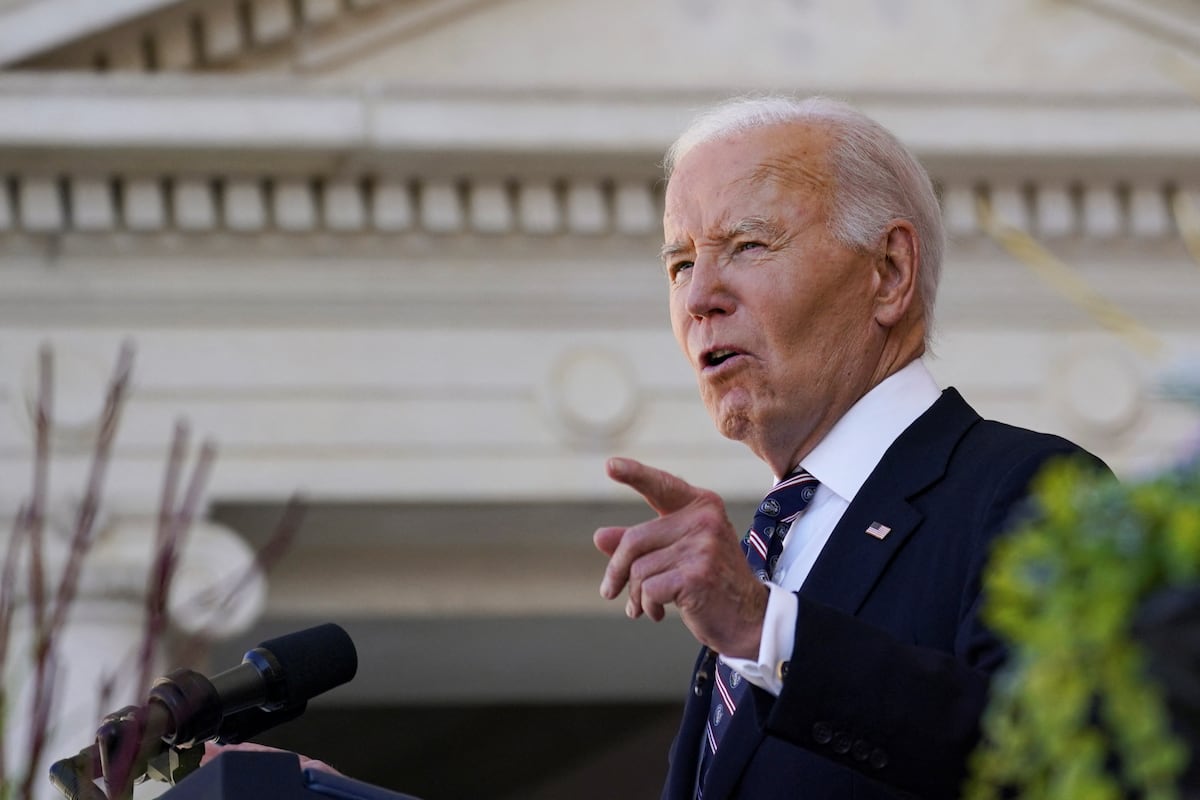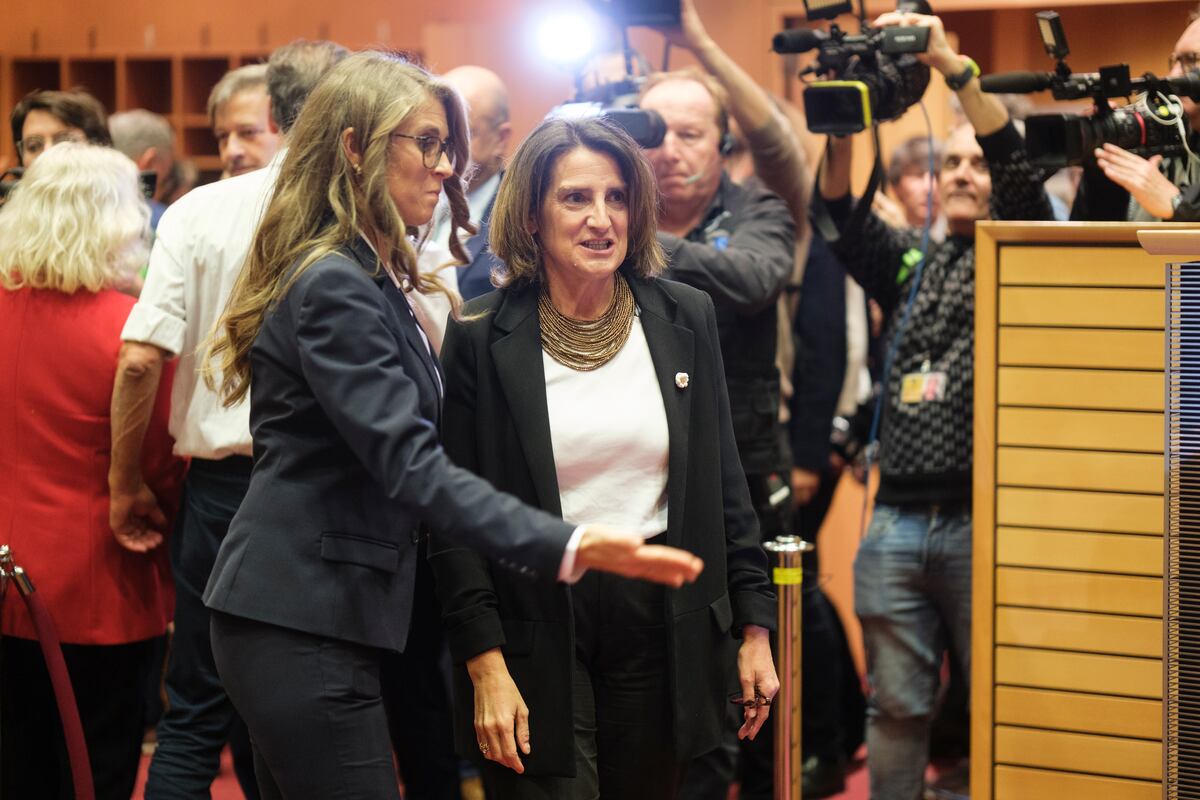For a president and his successor to meet in the White House after the presidential elections in the United States is a tradition. A custom that, however, was broken in 2020 when Republican Donald Trump was unable to accept his defeat at the polls against Joe Biden. This Wednesday it is Biden who will receive Trump in a symbol of the orderly and peaceful transfer of power. The Oval Office meeting will also serve to address some of the open issues on the national and international agenda. In particular, the current president will convey to his successor his vision of the importance of not abandoning Ukraine in the face of Russian aggression.
Biden meets with what has been his political nemesis. Much of the goal of his 2020 candidacy was to turn the page on Trumpism. He presented himself as a transitional president to return normality to the institutions after the chaotic four years of his predecessor. Becoming the first octogenarian president of the United States, the good results of the 2022 legislative elections and the lack of confidence that there would be another Democratic candidate capable of beating Trump encouraged him to seek re-election. However, his aging became too great an obstacle for him to hope to win again.
The victory of Trump, whom he has repeatedly called a threat to democracy, threatens his legacy. The president wants to lead by example in a model transfer of powers, while trying to consolidate some of his objectives in the remaining two months of his mandate. The role of the United States in the world is something that particularly worries Biden, who has dedicated great efforts to strengthening NATO and building alliances in the Pacific, mainly.
Biden is going to take advantage of the remainder of his mandate to send all the aid already authorized by Congress to Ukraine. The total amounts to about 175,000 million dollars (165,000 million euros), of which around 6,000 million dollars are pending execution. The current president is in favor of continuing to provide the Government of Volodymyr Zelensky with the help it needs. And he will try to convey that message to Trump.
The two leaders “will review the most important issues, both domestic and foreign policy, including what is happening in Europe, Asia and the Middle East,” National Security Advisor Jake Sullivan announced this Sunday in an interview on the CBS network. “The president will have the opportunity to explain to President Trump how he sees things, where they are and talk to President Trump about how he is thinking about taking on these issues when he takes office,” he added.
Trump spoke last Wednesday with Zelensky, in a conversation in which he also put billionaire Elon Musk, Trump’s campaign financier and owner of SpaceX, on the phone, which provides connectivity to Ukraine through the Starlink satellite network. According to sources cited by Washington Post and Reuters, Trump also spoke to Russian President Vladimir Putin on Thursday and asked him not to escalate the war. The Kremlin, however, has categorically denied this, describing the information as pure fiction.
The then-Republican candidate maintained during the campaign that Putin would never have invaded Ukraine if he had been in the White House. He also assured that he would end the war on his first day in office or even before taking office. Karoline Leavitt, Trump’s spokesperson, insisted on Fox News after Trump’s victory was announced that she could now “negotiate a peace agreement between Russia and Ukraine.” “It includes, on the first day, bringing Ukraine and Russia to the negotiating table to end this war,” he added.
The man who is emerging as future Secretary of State, Marco Rubio, and Trump’s National Security Advisor, Mike Waltz, have shown some skepticism about the multimillion-dollar aid to Ukraine and have indicated that peace will have to come through a negotiation. Many fear that Trump will threaten to cut off aid if Zelensky does not bow to some of the Russian demands.
Biden has tried to get Ukraine into “the strongest possible position on the battlefield, so that it is ultimately in the strongest possible position at the negotiating table,” Sullivan said. “It must be Ukraine that decides, for its own sovereignty and its own territorial integrity, when and how it comes to the negotiating table,” he added. According to the current National Security Advisor, the president will have the opportunity to “argue to Congress and the incoming Administration that the United States should not walk away from Ukraine, that walking away from Ukraine means more instability in Europe” and would ultimately cast doubt on the United States’ commitment to its allies in Asia.
The meeting will also serve as a time for Biden to convey sensitive national security information to Trump. The law indicates that a classified summary on this matter must be delivered to the president-elect as soon as possible and it is usual for them to continue receiving reports until they take office.
Impulses for revenge
The meeting, on the other hand, will serve as a thermometer to measure whether the president-elect is willing to curb his impulses for revenge and the persecution of his political rivals, whom he has described as an “internal enemy” in the campaign, or if he moderates that rhetoric. in search of “lowering the temperature,” as Biden requested last week.
Trump will take advantage of his trip to Washington to meet with the president of the House of Representatives, Republican Mike Johnson, who is expected to repeat his term in office. Much of the president-elect’s political agenda depends on Congress. Also this Wednesday the senators vote to elect their leader. Trump wants the Upper House to expedite his appointment as much as possible.
The one who will not go to the White House is Melania Trump. The custom is that in parallel to the meeting of the presidents there are others between the outgoing and incoming first lady, but Trump’s wife excused herself and will not attend Jill Biden’s invitation.
This is the first transfer of power meeting in more than 30 years between a president and his successor, both having been rivals in the elections. The last was in 1992, when Bill Clinton defeated then-president George Bush at the polls. Clinton, George W. Bush and Barack Obama passed on power after serving two terms. In the case of Trump and Biden, they have been rivals twice, in 2020 and for much of the 2024 campaign, until the current president threw in the towel. Biden and Trump meet face to face for the first time, with the exception of the presidential debates.









